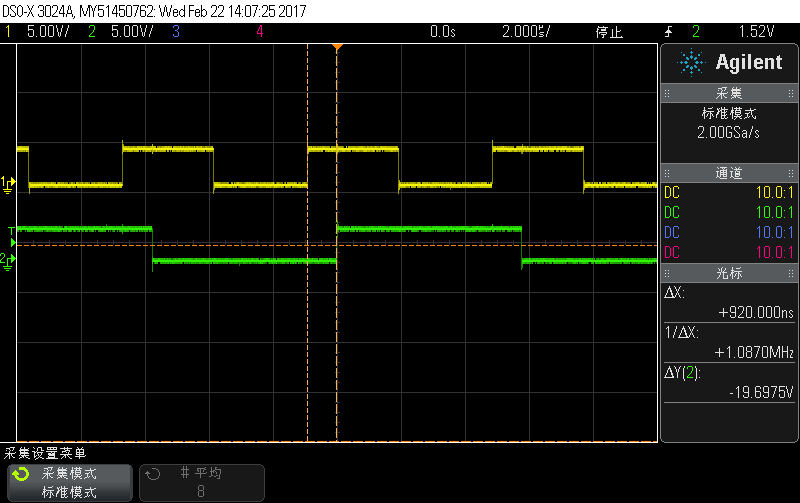Hi all,
I'm now working on a sw SPI code(slaver) using FR2311, MCLK = 16MHz, and I find the CPU cost nearly 1us to response the ISR(TB1.1 P2.0 Capture).
It sounds a little long....
Is it normal ? Hope someone 's help.
Thanks...
#include <msp430fr2311.h>
void main( void )
{
// Stop watchdog timer to prevent time out reset
WDTCTL = WDTPW + WDTHOLD;
FRCTL0 = FRCTLPW | NWAITS_1;
__bis_SR_register(SCG0); // disable FLL
CSCTL3 |= SELREF__REFOCLK; // Set REFO as FLL reference source
CSCTL0 = 0; // clear DCO and MOD registers
CSCTL1 &= ~(DCORSEL_7); // Clear DCO frequency select bits first
CSCTL1 |= DCORSEL_5; // Set DCO = 16MHz
CSCTL2 = FLLD_0 + 487; // DCOCLKDIV = 16MHz
__delay_cycles(3);
__bic_SR_register(SCG0); // enable FLL
while(CSCTL7 & (FLLUNLOCK0 | FLLUNLOCK1)); // FLL locked
CSCTL4 = SELMS__DCOCLKDIV | SELA__REFOCLK; // set default REFO(~32768Hz) as ACLK source, ACLK = 32768Hz
// default DCOCLKDIV as MCLK and SMCLK source
P1DIR |= BIT0; //P1.0 output
P2DIR &= ~BIT0; //P2.0 as caputure port
P2SEL0 |= BIT0;
PM5CTL0 &= ~LOCKLPM5; // Disable the GPIO power-on default high-impedance mode
// to activate previously configured port settings
TB1CCTL1 |= CM_1 | CCIS_0 | CCIE | CAP | SCS;
TB1CTL |= TBSSEL_2 | MC_2 | TBCLR ; // Use SMCLK as clock source, clear TB0R
__bis_SR_register(LPM0_bits | GIE);
__no_operation();
}
#pragma vector = TIMER1_B1_VECTOR
__interrupt void TIMER1_B1_ISR(void)
{
P1OUT ^= BIT0;
TB1CCTL1&= ~CCIFG;
}


